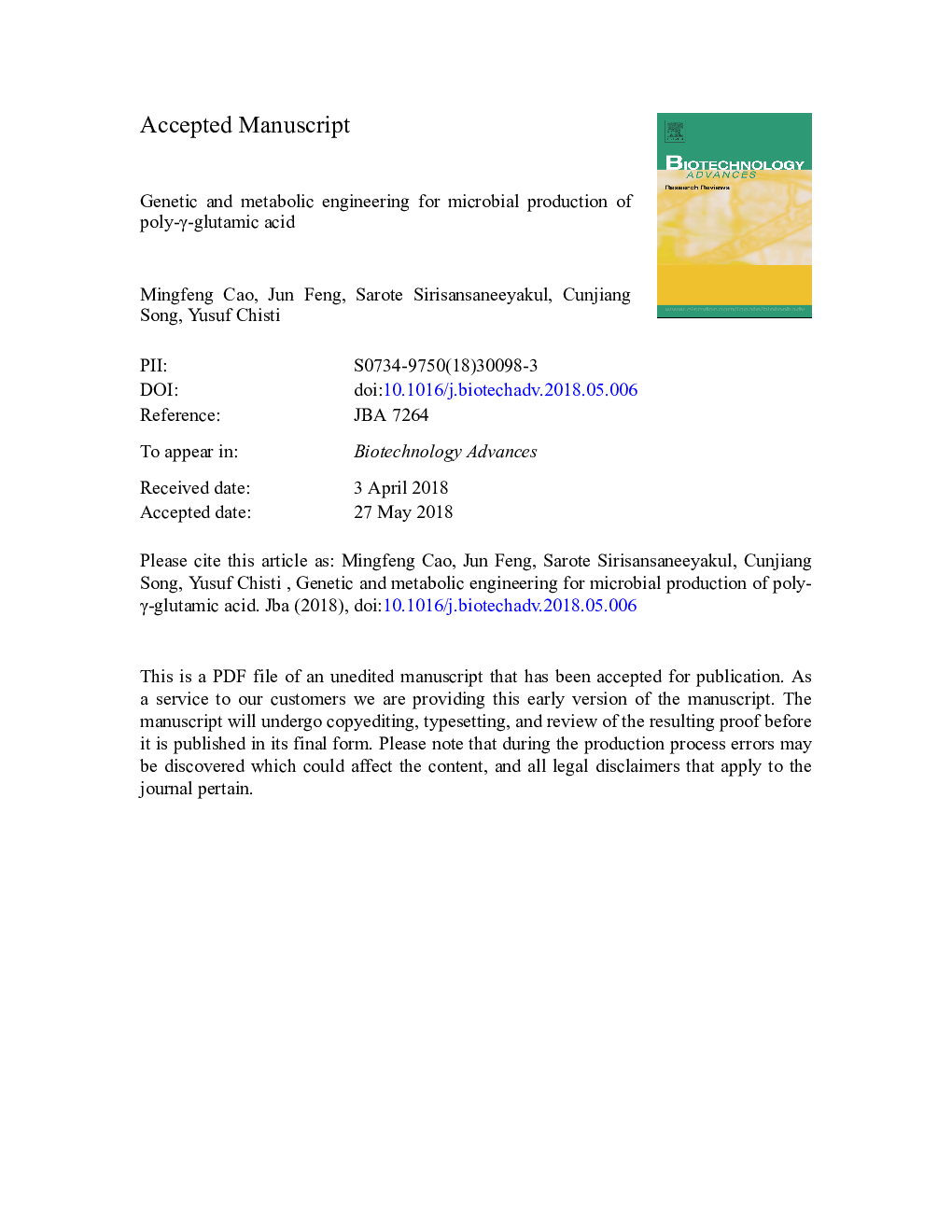| Article ID | Journal | Published Year | Pages | File Type |
|---|---|---|---|---|
| 6486547 | Biotechnology Advances | 2018 | 39 Pages |
Abstract
Poly-γ-glutamic acid (γ-PGA) is a natural biopolymer of glutamic acid. The repeating units of γ-PGA may be derived exclusively from d-glutamic acid, or l-glutamic acid, or both. The monomer units are linked by amide bonds between the α-amino group and the γ-carboxylic acid group. γ-PGA is biodegradable, edible and water-soluble. It has numerous existing and emerging applications in processing of foods, medicines and cosmetics. This review focuses on microbial production of γ-PGA via genetically and metabolically engineered recombinant bacteria. Strategies for improving production of γ-PGA include modification of its biosynthesis pathway, enhancing the production of its precursor (glutamic acid), and preventing loss of the precursor to competing byproducts. These and other strategies are discussed. Heterologous synthesis of γ-PGA in industrial bacterial hosts that do not naturally produce γ-PGA is discussed. Emerging trends and the challenges affecting the production of γ-PGA are reviewed.
Keywords
TCAPTSpgdsPGSAmtBVHBγ-PGAGDHGOGATSECSGRASNADPHGlnKIPTGAI-2CodYEPSβ-d-1-thiogalactopyranosideLPSGGTmreBγ-glutamyltransferasePoly-γ-glutamic acidglutamic acidExopolysaccharidesgenerally recognized as safeAmmonium transporterMBId-Amino acid aminotransferaseBiopolymersSRNAphosphotransferase systemSucrose phosphorylaselipopolysaccharidePathway engineeringNADnicotinamide adenine dinucleotidenicotinamide adenine dinucleotide phosphate (reduced form)Vitreoscilla hemoglobintricarboxylic acid cycleglutamate racemaseglutamate dehydrogenaseGlutamine synthetase
Related Topics
Physical Sciences and Engineering
Chemical Engineering
Bioengineering
Authors
Mingfeng Cao, Jun Feng, Sarote Sirisansaneeyakul, Cunjiang Song, Yusuf Chisti,
